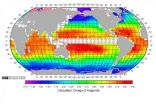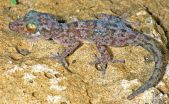(Press-News.org) Autoimmune diseases like Crohn's Disease and multiple sclerosis, in which the immune system attacks its own body rather than predatory invaders, affect 5-20% of the global community. A study published recently in Autoimmunity Reviews by Prof. Yehuda Shoenfeld, the Laura Schwarz-Kipp Chair for Research of Autoimmune Diseases at Tel Aviv University's Sackler Faculty of Medicine and Head of Zabludowicz Center for Autoimmune Diseases at Chaim Sheba Medical Center, Tel Hashomer, points to the major role obesity plays in triggering and prolonging these autoimmune diseases.
According to the research, obesity leads to a breakdown of the body's protective self-tolerance, creating the optimal environment for autoimmune diseases, and generates a pro-inflammatory environment likely to worsen the disease's progression and hinder its treatment.
"We've been aware of a long list of causes of autoimmune disorders -- infections, smoking, pesticides, lack of vitamins, and so forth. But in last five years, a new factor has emerged that cannot be ignored: obesity," said Prof. Shoenfeld. "According to the World Health Organization, approximately 35% of the global community is overweight or obese, and more than ten autoimmune diseases are known to be associated with increased weight. So it's critical to investigate obesity's involvement in the pathology of such diseases."
The culprit in fat: Adipokines
In addition to their own research, Prof. Shoenfeld and his team from Tel Hashomer hospital conducted a systematic review of 329 studies from around the world on the relationship between obesity, adipokines (compounds secreted by fat tissue and involved in numerous physiological functions, including the immune response), and immune-related conditions like rheumatoid arthritis, multiple sclerosis, type-1 diabetes, psoriasis, inflammatory bowel disease, psoriatic arthritis, and Hashimoto thyroiditis.
"According to our study and the clinical and experimental data reviewed, the involvement of adipokines in the pathogenesis of these autoimmune diseases is clear," said Prof. Shoenfeld. "We were able to detail the metabolic and immunological activities of the main adipokines featured in the development and prognosis of several immune-related conditions."
A dose of Vitamin D
Prof. Shoenfeld conducted a study on mouse populations with multiple sclerosis given a Mediterranean diet rich in unsaturated fats. He found that Vitamin D deficiency was also a result of obesity and, once corrected, alleviated paralysis and kidney deterioration associated with the disorder. It also improved the prognosis and survival of the mice.
"Modern life makes us all prone to Vitamin D deficiency," said Prof. Shoenfeld. "We live in labs, offices, and cars. When Vitamin D is secreted in fat tissue, it is not released into the body, which needs Vitamin D to function properly. Since Vitamin D supplements are very cheap and have no side effects, they are an ideal compound that should be prescribed to anyone at risk of a compromised immune system."
Prof. Shoenfeld welcomes the general trend toward personalized medicine, and believes his research can be a basis for specific therapies to treat autoimmune syndrome. "If a patient is at risk, he or she should be told to do everything in his or her power to maintain a healthy weight," he said.
INFORMATION:
American Friends of Tel Aviv University supports Israel's most influential, most comprehensive, and most sought-after center of higher learning, Tel Aviv University (TAU). A leader in the pan-disciplinary approach to education, TAU is internationally recognized for the scope and groundbreaking nature of its research and scholarship -- attracting world-class faculty and consistently producing cutting-edge work with profound implications for the future.
TAU is Israel's only institution of higher learning ranked among the world's top 200 universities by the authoritative Times Higher Education World University Rankings. It is one of a handful of elite international universities rated as the best producers of successful startups, and TAU alumni rank 9th in the world for the amount of American venture capital they attract.
Stanford, CA--Photosynthesis is probably the most well-known aspect of plant biochemistry. It enables plants, algae, and select bacteria to transform the energy from sunlight during the daytime into chemical energy in the form of sugars and starches (as well as oils and proteins), and it involves taking in carbon dioxide from the air and releasing oxygen derived from water molecules. Photosynthetic organisms undergo other types of biochemical reactions at night, when they generate energy by breaking down those sugars and starches that were stored during the day.
Cells ...
A team of scientists has published the most comprehensive picture yet of how acidity levels vary across the world's oceans, providing a benchmark for years to come as enormous amounts of human-caused carbon emissions continue to wind up at sea.
"We have established a global standard for future changes to be measured," said Taro Takahashi, a geochemist at Columbia's Lamont-Doherty Earth Observatory who published the maps with his colleagues in the August issue of the journal Marine Chemistry. The maps provide a monthly look at how ocean acidity rises and falls by season ...
Research scientists at VTT Technical Research Centre of Finland have demonstrated a new technique for generating electrical energy. The new method can be used in harvesting energy from mechanical vibrations of the environment and converting it into electricity. Energy harvesters are needed, for example, in wireless self-powered sensors and medical implants, where they could ultimately replace batteries. In the future, energy harvesters can open up new opportunities in many application areas such as wearable electronics.
Research scientists at VTT have successfully generated ...
New Rochelle, NY, November 10, 2014--To understand their risk for hereditary forms of cancer, such as breast and colon cancer, women need to know their family history. The design and effectiveness of a 20-minute skills-based intervention that can help women better communicate with relatives and gather and share information about cancer family history is described in a study in Journal of Women's Health, a peer-reviewed publication from Mary Ann Liebert, Inc., publishers. The article is available free on the Journal of Women's Health website at http://online.liebertpub.com/doi/full/10.1089/jwh.2014.4754 ...
A new drug combination for rheumatoid arthritis treats the disease just as well as other intensive treatment strategies but with less medication and fewer side effects at a significantly lower cost. Doctoral researcher Diederik De Cock (KU Leuven) describes the strategy in a new study published in Annals of Rheumatic Diseases.
Rheumatoid arthritis (RA) is a chronic auto-immune disease that causes pain and stiffness in the joints, fatigue, bone damage and, eventually, loss of mobility. RA afflicts around 1% of people in the western world; in Belgium, 80,000 to 100,000 ...
Hidden away in the tropical darkness of nocturnal Madagascar, scientists have discovered a new species of gecko which has been described in the open access journal Zoosystematics and Evolution.
A master of disguise, the new species Paroedura hordiesi has camouflage pattern to blend with its natural habitat, while climbing on rocks and the ruins of an old fort, where it was spotted by scientists.
Home of the new gecko, the karstic limestone massifs in the region of northern Madagascar are believed to still harbour further undescribed reptile species, some of which might ...
BOSTON - The innate immune system serves as the body's specialized armed forces division, comprised of a host of defense mechanisms used to battle bacterial infections. Among the system's warriors are white blood cells including the specialized macrophages, which maintain constant surveillance for foreign intruders or pathogens, functioning as the body's first line of defense, poised to attack at barrier sites including the skin, lungs and intestines.
Now, a research team led by investigators at Beth Israel Deaconess Medical Center (BIDMC) finds that naturally occurring ...
Recognizing the emotions other people feel is crucial for establishing proper interpersonal relations. To do so, we look at (amongst other things) facial expressions and body posture. Unfortunately, in some neurological disorders this ability is heavily impaired. This happens, for example, in multiple sclerosis where scientific evidence shows that people affected by the disease often have trouble recognizing expressions that communicate emotions. A new study now demonstrates that the same difficulty may also be encountered with emotions conveyed by posture. In addition, ...
A newly identified signaling pathway that stimulates glucose uptake in brown fat cells might be useful for treating type 2 diabetes and obesity, according to a study in The Journal of Cell Biology.
When the body encounters cold temperatures, the sympathetic nervous system activates adrenoceptors on the surface of brown fat cells to stimulate glucose uptake from the bloodstream. Brown fat cells then use this glucose as a fuel source to generate body heat. Glucose uptake also can be induced by insulin. However, although insulin-stimulated glucose-uptake is well understood, ...
THE term 'spirituality' is now widely used to describe the qualities that give people hope, meaning and purpose. In the case of patients, it can aid their recovery. The University of Huddersfield has become a key centre for research into spirituality and how it can be integrated into health care teaching and practice.
Articles, overseas conference presentations and now close links with an NHS trust are among the recent outputs and activities of the University's Spirituality Special Interest Group, based in the School of Human and Heath Sciences. Established for ten ...




